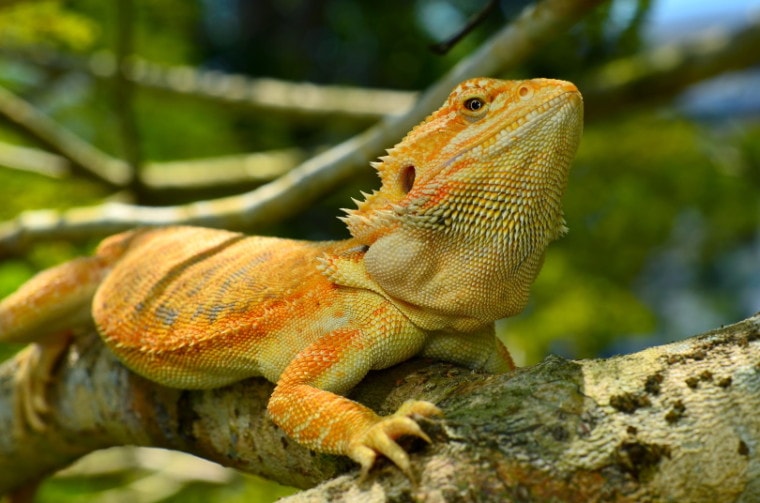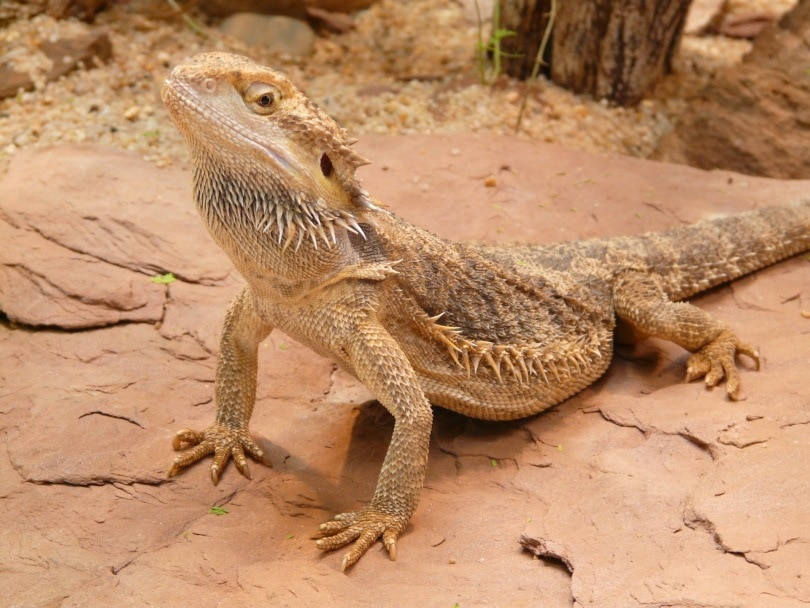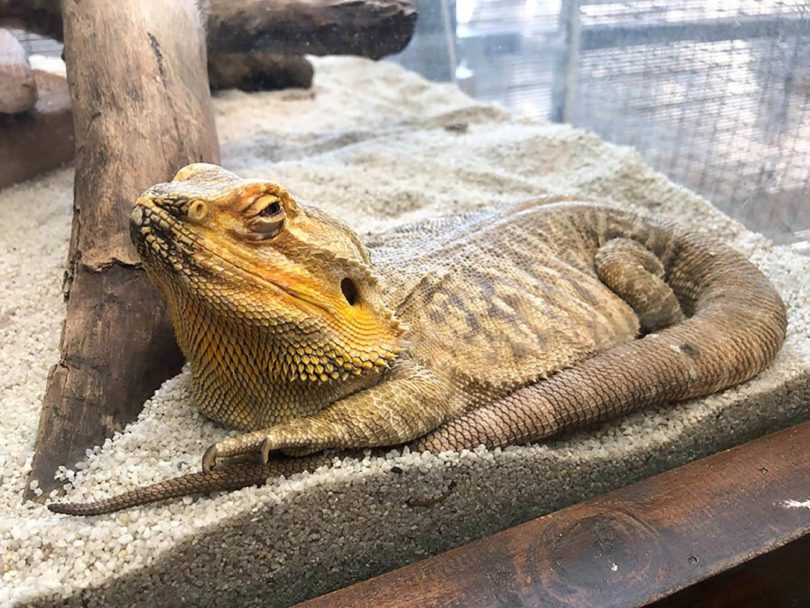Bearded Dragon Had Diarrhea and Then Hasnt Pooped Again

Bearded dragons are great companions for their owners. Due to the attention and care that these cute lizards require, it isn't uncommon for their owners to notice when something is amiss. This is especially true when your bearded dragon isn't pooping as it should.
Being a creature of habit and routine, most bearded dragons defecate once a week—that is if everything is going as it should. When that movement doesn't take place, it can leave you wondering whether you should worry. There are several reasons your pet may not be relieving themselves as they should. Let's take a look at a few of them so you can determine whether your bearded dragon's pooping schedule is cause for concern.
7 Possible Causes of a Constipated Bearded Dragon
1. Not Enough Food
One of the main reasons a bearded dragon may skip a poop or two could have something to do with how much food they are taking in. On average, a baby bearded dragon should eat at least 3-5 times daily to help them grow as they should. A juvenile's needs lower slightly resulting in them eating twice a day. Once your dragon is an adult, you'll discover they only eat once a day.
If your bearded dragon isn't eating like it should for its age, stress could be the cause. This stress and lack of eating can easily cause your dragon to miss necessary bowel movements. The temperature inside their tank, the humidity, and even the size of the tank itself can all result in a stressful situation for your dragon and make them avoid their feedings.

2. Overeating
Yes, overeating can affect your bearded dragon just as much as lack of food. It is up to you as the owner to ensure your dragon eats a well-balanced diet. If you don't, then they can suffer from constipation, vomiting, and even paralysis in some cases. An abundance of insects and worms can often be the biggest cause of an overweight bearded dragon. It is best to introduce your pet to greens and salad options at an early age to ensure they get the best of both worlds.
3. Dehydration
Like with other animals, proper hydration is crucial for a healthy bearded dragon. One of the most common mistakes that leave bearded dragons dehydrated is owners who place bowls of water inside their cage or simply mist the cage a few times a week. These dragons prefer moving water. To keep your dragon hydrated and healthy, it may be wise to put a small fountain inside their habitat for drinking.
The water bowl can be used by your dragon to soak in when he or she feels the need. As the owner, you'll also be responsible for ensuring your bearded dragon is bathed to help replenish its hydration and moisture. Most of your dragon's hydration will come from the foods they eat. This is another reason why it's so important to introduce fresh greens and veggies into their diet at a young age.
- See Also: Can I Wash My Bearded Dragon With Soap? Is It Safe?
4. Too Much Salad
Salad is an important part of your bearded dragon's diet, but keep in mind that too much of a good thing can be detrimental. Keeping salad available for your dragon is important but know what you're providing them. While hydration from these greens and veggies is crucial to your dragon's health, too much could give them diarrhea. When this happens, your dragon may lose too much of its moisture. High temperatures in the cage can make issues like this worse so keep a close eye on your dragon and its salad intake.

5. Lack of Activity or Laziness
Yes, if your bearded dragon is too lazy, he may not poop. While activities may be fewer during brumation, offering toys and accessories to your bearded dragon can help promote the play. Allowing your dragon to climb or even go for a walk with you are all great ways of keeping their activity levels up. This will promote proper digestion.
6. Improper Temperatures
We've already mentioned how improper temperatures can affect your dragon. If it is too hot in the habitat your dragon may find itself lethargic and panting. This dispels their moisture and makes dehydration a serious issue. As we said above, when a bearded dragon is dehydrated, it may not poop properly.
Low temperatures are also dangerous for your bearded dragon. As desert reptiles, bearded dragons need hot temperatures to promote healthy digestion and proper health. Having a healthy gut will keep your dragon pooping as it should. If the temperatures drop too low your dragon's appetite will wane, they could become constipated, and their energy levels will drop. Keeping your dragon's basking area at 92-110 degrees Fahrenheit is recommended. In the cool areas, it should be 75-85 F. At night, your dragon will do best with temperatures of 60-75 degrees. This will help keep a healthy gut and a happy dragon.
7. Constipation and Impaction
Unfortunately, constipation and impaction are common issues your bearded dragon may face. There are many reasons a bearded dragon may become impacted. Loose substrate, feeding them insects that are too large, and even random objects they may come into contact with can end up in your dragon's tummy and make them avoid pooping. Luckily, over time, bearded dragons usually pass these issues but knowing what to avoid can help you keep it from happening again in the future.


How You Can Help
Proper diet, including bugs that are the right size, good hydration, and activity helps keep your bearded dragon on a good pooping schedule. Unfortunately, from time to time, constipation and impaction are going to happen. One of the best ways to help your dragon defecate when they are having issues is a nice, warm bath. The important thing about using baths is to make sure your dragon doesn't become accustomed to them. If they do, your dragon may hold its bowels in hopes of getting that bath.
If the bath doesn't help, a few drops of olive oil or sunflower oil may do the trick. If not, purees such as apple, pumpkin, and banana may be the thing that gets your dragon pooping again. If you exhaust all these efforts and still have no luck, then it may be time to take your scaly friend to the veterinarian.

In Conclusion
While there are many reasons a bearded dragon may not be pooping as it should, a caring owner can make the needed adjustments to get them back on track. The key to ensuring your dragon is in good health is simply keeping track of their environment and reactions to what's around them. If you do this, your dragon will regulate its schedule and be by your side for years to come.
Featured Image Credit: Ery Azmeer, Shutterstock
rylandenalland1953.blogspot.com
Source: https://petkeen.com/bearded-dragon-not-pooping/
0 Response to "Bearded Dragon Had Diarrhea and Then Hasnt Pooped Again"
Post a Comment